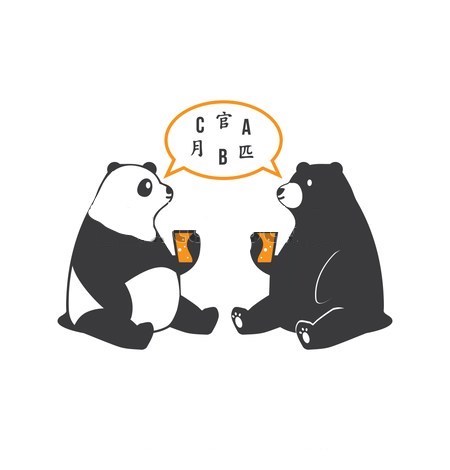12 German Words That Are Untranslatable Into English
If every language has their own character, precision is definitely what defines German. German seems to have a word for everything, and many words do not have a translation in English. Here are 12 words in German that you couldn’t translate:
• Kummerspeck: The weight gained due to overeating, in order to relieve your feelings. It literally means “grief bacon”.
• Fisselig: being flustered to the point of getting confused or incapable, because someone is nagging you or someone important is watching you.
• Fernweh: nostalgia for far places you have never been to. A romantic longing for traveling, a vague desire of going “back” to somewhere and something you have never actually experienced.
• Waldeinsamkeit: The feeling of being alone in the woods, when you are just enjoying nature and the sound of birds, wind and your own steps.
• Treppenwitz: when the perfect remark or joke in reply to someone’s unnerving comments comes to your mind too late; literally, on the stairs (Treppen).
• Schadenfreude: taking pleasure in other people’s misfortune. Slightly pervert, but admittedly something that happens to all of us (sure, there are limits!)
• Fremdschämen: feeling ashamed for another person’s behavior.
• Verschlimmbessern: you’ve spilled coffee all over the carpet of your friend’s living room. Bending down to clean it, you also spill the milk. That’s verchlimmbessern: making things worse while trying to repair your mistakes.
• Ohrwurm: “Ear worm”. You know those summer songs that get into in your head and you keep singing them without even noticing? These are “ear worms”.
• Erklärungsnot: the urgency of having to explain yourself quickly, to show that whatever it looks like, what happened is actually not your fault.
• Zugzwang: “To be forced to make a decision”. This word refers to a moment of intense pressure when you absolutely have to make a decision over something, and you cannot take time to think about it.
• Dreikäsehoch: “Three cheese high”. It refers to children, as they are almost so small that you could measure their height by putting three wheels of cheese on the top of each other.
______________________________
Join us or come take a look!
We are a group of people convinced that language skills should be more valued in the job market. For this reason we created Kolimi, a platform that connects multilingual professionals to the people and business needing them, in any field of work.
Join us to find new opportunities, or follow us on Facebook, Twitter, YouTube or LinkedIn to discover new things about languages!
______________________________







